What is Anxiety?
Do you feel like you’re burdened with anxiety? Do you struggle to sleep at night because you dread work the next day? Does your mind race as you think about all the possible things that can go wrong? Do you worry about every nagging physical sensation and wonder if you have a serious illness?
In today’s world, anxiety presents itself in a multitude of ways. Stressors, or specific situations that seem threatening, come and go, but if you feel fear or dread much of the time, anxiety has you in its grips.
Anxiety is a sense of distress or uneasiness in the mind or body, and it is often considered a normal reaction to stress. Anxiety is also a part of being human – whether we want it to be or not. In the past, anxiety helped us survive in an unpredictable environment filled with predators, toxic plants, and unseen hazards. Our world has changed, but our brains still react to threats – even small threats or threats we just make up in our heads – as though we’re trying to avoid being eaten by a lion on the African savannah. We simply need to change our brains to better fit the world we live in now. It may sound difficult, but it is completely doable.
Facts about Anxiety
It’s easy to think we’re the only one struggling with anxiety and no one really understands what we’re going through. Here are some facts to help dispel those ideas – even just a little bit. According to the Anxiety and Depression Association of America:
- Anxiety disorders are the most common mental illness in the U.S., affecting 40 million adults ages 18 and older.
- People with anxiety disorders are three to five times more likely to go to the doctor than those who do not suffer from anxiety disorders.
- Anxiety disorders are highly treatable, but only 36.9 percent of those struggling with anxiety seek treatment.
Risk Factors
Genetics and environmental factors may make you more prone to anxiety. Such factors include the following:
- Having blood relatives who have an anxiety disorder
- Personality traits such as shyness
- Stress due to illness or a buildup of stress over time
- Trauma
- Drug or alcohol use or misuse
- Other mental health issues, such as depression
- Medical problems
How Do I Know if I Have an Anxiety Disorder?
There are several types of anxiety disorders, and each type has its own set of symptoms that would be too numerous to mention here. However, here are a handful of symptoms clients report most often in my practice:
- Persistent, excessive worry about activities and events and difficulty controlling that worry
- Repeated, intense episodes of anxiety that lead to panic attacks
- Fear and avoidance of social situations due to fear of embarrassment and judgment
- Excessive fear caused by previous exposure to a threat often accompanied by nightmares, flashbacks, and hypervigilance
- Fear of specific objects or situations such as flying in an airplane, public speaking, vomiting, and taxidermy just to name a few
- Recurring thoughts or images (obsessions) that are distressing followed by actions (or compulsions) to neutralize those thoughts or images
- Other physical symptoms such as muscle tension, insomnia, gastrointestinal issues, sweating, trembling, headaches, and chronic pain
When to Seek Treatment
As stated previously, anxiety is an expected part of life. However, if it interferes with work, school, relationships, or your physical health, it is time to seek treatment. Here are some questions to consider when thinking about seeking treatment.
- Is your anxiety so difficult to control that it feels like it is taking over your life?
- Are you trying to cope in ways that are hurting you (such as by misusing substances)?
- Do you think you might have a medical problem?
- Are you so overwhelmed by anxiety that you’re thinking about suicide?
Treatment for Anxiety
There are several proven, evidence-based strategies to help people both lessen anxiety and manage anxiety more effectively. Psychotherapy, or “talk therapy” consists of several different modalities or types. The most common talk therapy approach for anxiety is Cognitive-Behavioral Therapy (CBT), which focuses on the relationship between thoughts, feelings, and behaviors and changing the way people think, feel and act in response to anxiety. Acceptance and Commitment Therapy (ACT) and Mindfulness are approaches that can help as well.
Biofeedback is also a great tool for treating anxiety. Biofeedback helps you become more aware of what’s going on in your body. For example, you can find out how fast your heart is beating, how fast you’re breathing, or even what temperature your fingers are. Since these body processes often indicate anxiety, becoming more aware can help you learn how to change these processes and therefore bring your anxiety down to a more manageable level. As a board-certified biofeedback therapist, I use biofeedback with clients with great results.
Finally, medication can help, too. I regularly talk with clients about the benefits and risks of medication, monitor side effects, and coordinate with medication prescribers as needed when other approaches do not seem to be working as we would like. Medication is not meant as a cure, per se, but it can be a useful “buffer” while learning new skills to lessen or manage anxiety.
What Can I Do to Prepare for My First Session?
It is often a good idea to take some notes before your first appointment. Following are some questions to consider as you prepare for your session:
- How long have you been feeling anxious? Is it linked with a specific event or not so much?
- When do you feel anxious? Do you feel it all the time, or just some of the time?
- What have you already tried to help you with your anxiety?
- What are your anxiety symptoms? Note your thoughts, feelings (both emotional and physical), and behaviors related to anxiety.
- How would your life be different if you did not have anxiety?
- How will you know that therapy is helping you?
- What is most important for your therapist to know at the end of your first session?
Feel free to include any questions you have for your therapist, too!
Don’t worry about making sure you say *everything* during your first therapy appointment. Whatever needs to be said will be said in time. Remember that your therapist is there, first and foremost, to help you. Anxiety is one of the most treatable mental health issues, and if you and your therapist are a good “fit,” know you can lessen or learn to manage your anxiety in a way that will allow you to live a less fearful and more productive life!

Andrea Greebon, MS, LPC, BCB
Andrea has office hours in Dripping Springs and also does tele-therapy. She is a Licensed Professional Counselor and board certified in biofeedback.

